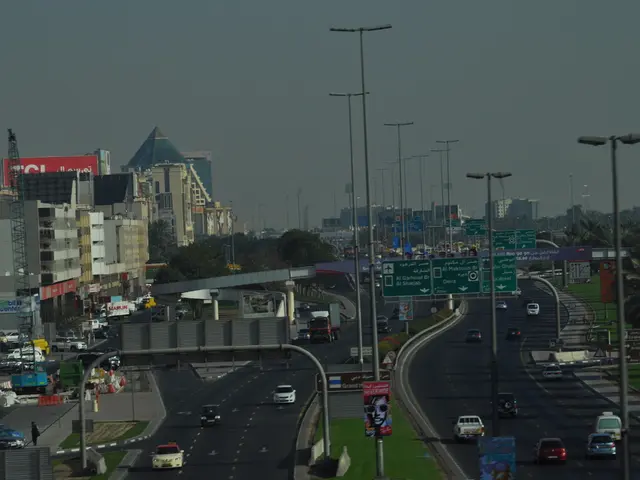Austria declines to accept additional Afghans
In the wake of the Taliban's return to power, European migration policies towards Afghan refugees have become more restrictive. This shift is evident in Austria, a country that has taken a hardline stance on Afghan refugees.
Austrian Chancellor Sebastian Kurz has warned of a new mass exodus from Afghanistan, finding the current images from the border with Iran alarming. In line with this hardline approach, Kurz has stated that Afghans in Austria will continue to be deported. However, it's important to note that these deported Afghans will not be sent to Kabul, but to their original countries of arrival in Europe, such as Romania.
Kurz's warnings extend beyond the immediate situation, as he also expresses concerns about uncontrolled migration to Europe due to the bleak outlook for Afghanistan's future. Yet, he maintains that there are still opportunities to prevent a repeat of the 2015 migration crisis.
Austria's stance aligns with a broader European Union context, where several countries, including Germany, have adopted stricter policies. For instance, Germany has conducted deportations of Afghan nationals despite not formally recognizing the Taliban regime, and it has suspended family reunification for many migrants.
The European Union is moving towards the implementation of an asylum policy overhaul, starting from 2026. This overhaul aims to reduce irregular arrivals by enhancing border controls and enabling returns to countries such as Afghanistan. However, rights groups warn that these measures risk arbitrary detention and repatriations to dangerous situations.
Despite ongoing migration, many European countries continue to restrict access to rights and support for refugees, exacerbating risks of homelessness and marginalization. Afghan asylum seekers remain a significant group within EU+ asylum applicants, ranking second in numbers, though applications have decreased from peaks in 2023 to more stable levels recently.
This trend towards restrictive migration management is reflected across Europe, as countries coordinate their efforts to tighten border controls and limit Afghan asylum intake. As the situation in Afghanistan continues to evolve, it remains to be seen how these policies will impact the lives of Afghan refugees seeking safety and a better future in Europe.
[1] European Commission (2021). Proposal for a Regulation of the European Parliament and of the Council on the European Union's Asylum and Migration Management System (EUAMMS). [2] UNHCR (2021). Afghanistan Refugees in Europe: An Overview. [3] Amnesty International (2021). Europe's Shame: Pushing Back Refugees at the Borders. [4] European Union Agency for Asylum (2021). Joint Operational Return and Reception Centre (JORRC) for Afghanistan.
The European Commission, in its proposal for the European Union's Asylum and Migration Management System (EUAMMS), highlights the aim to reduce irregular arrivals by enhancing border controls and enabling returns to countries such as Afghanistan. (1)
Amnesty International, in its report "Europe's Shame: Pushing Back Refugees at the Borders," warns that European efforts to tighten border controls and limit Afghan asylum intake risk arbitrary detention and repatriations to dangerous situations. (3)








